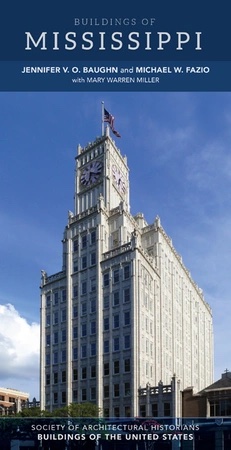
There is no other place quite like it in Mississippi. The Neshoba County Fairgrounds is home to Mississippi’s oldest and largest active county fair. For one week each summer, the rural spot becomes Mississippi’s “giant house party,” a place of community, politics, late-night singing, horse racing, exhibitions, plenty of heat and sweet tea, and no small amount of dust or mud.
A randomly coursed stone gateway (1970) marks the entrance. Beyond it lie more than 600 “cabins,” most of them arranged around and near either Founders Square or the half-mile, red clay racetrack. A pavilion (1914; 1976 renovated; 1986 restored) seating one thousand stands inside the square and is ringed by oak trees. On the north side of the racetrack are grandstands, an exhibition hall, horse and cattle barns (c. 1929), and during fair time a midway with carnival rides. The cabins constitute the majority of the structures, some being one or three stories tall, but most are two, with living spaces below and sleeping quarters above and with front porches.
At the first fair in 1889, participants camped out in tents or wagons. In 1891, organizers founded the Neshoba County Stock and Agricultural Fair Association to manage things, formed a corporation, and sold stock. In 1893, they began building permanent structures and delineated the square with bonfires at its four corners. Electric power arrived in 1939. Only two cabins remain from this formative period. The continuing existence of the institution was in doubt during World War II when no fair was held, the site partially flooded, and some cabins were deconstructed for their scarce materials. After the war, however, the fair enjoyed a resurgence, and most of today’s cabins ( pictured) date from the postwar period, with a peak of construction in the 1970s. They are stylishly painted in often brilliant colors, are built from a variety of new and recycled materials, and are embellished with polychromatic lighting, signs, and, during the fair, banners, flags, posters, and wall art. The event runs from Friday to Friday and is held during the last week of July in election years and during the first week of August in non-election years.

